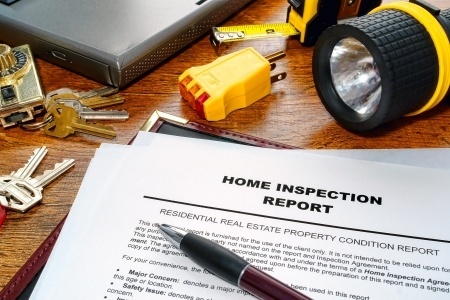
After making an offer on a property, it’s always a good idea to get an inspection of the home. This not only allows the homebuyer to avoid purchasing a home that is in poor condition, but also prevents the buyer from spending hundreds or even thousands of dollars on costly repairs. Once the licensed inspector reviews the property and determines the condition of the home, it is therefore time to begin discussing repairs with the home seller. But which repairs should you negotiate after a home inspection? Here’s what you need to know.
Repairs for the home SELLER to make
Following a home inspection, it’s first important to determine which repairs must be made by the seller. This will not only help you avoid paying for upgrades that are not your financial responsibility, but also allow you to narrow down the repairs worth negotiating. Typically, the two main repairs a home seller must make are water issues, like mold or wet floors, and code safety violations, like a missing handrail. If either of these are found in your inspector’s report, simply confirm that the home seller will be covering these costs. Now, it’s time for negotiations.
Repairs to negotiate
Although it may be tempting to negotiate the cosmetic issues you’d like fixed, it’s important to focus your discussion on the property’s structural issues. In fact, according to mortgage expert, Michele Lerner, “some contracts will expressly state that the buyers cannot request any cosmetic repairs to be made.” Instead, spend your time negotiating the following:
- Roof repairs
- Upgrading water heaters and/or HVAC systems
- Replacing sewer or water pipes
- Upgrading electrical wiring
With each negotiation, make sure you have enough research to back up your argument. This will prove to the homeowner that the issue is serious (if it is), rather than a personal preference.
Of course, not all repairs need to be made right away. Once the structural issues are fixed, you can continue to make upgrades throughout your years as a homeowner. For more information about negotiating home repairs, consult with your local real estate agent. To learn more about home financing in general, contact one of our mortgage specialists today.


